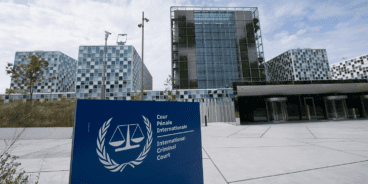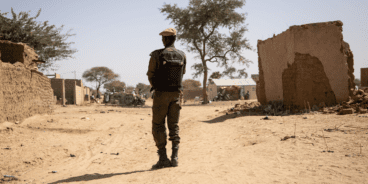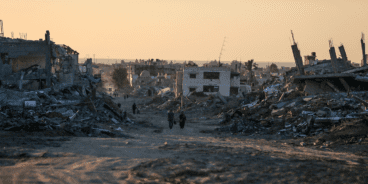Statement on Recent Withdrawals from the International Criminal Court
The Global Centre for the Responsibility to Protect regrets the recent decisions of Burundi, South Africa and Gambia to withdraw from the Rome Statute of the International Criminal Court (ICC). These declarations of intent to withdraw from the ICC undermine progress made in establishing that any person, regardless of rank or high office, can be held accountable for perpetrating mass atrocity crimes committed anywhere in the world.
This progress is evident in the 2012 conviction of Thomas Lubanga (Democratic Republic of the Congo) for enlisting children into armed conflict, the 2016 conviction of Jean-Pierre Bemba (Central African Republic) for ordering combatants to use rape as a weapon of war, and the 2016 conviction Ahmad al-Faqi al-Mahdi (Mali) for the destruction of cultural heritage at Timbuktu. Principles of international justice have also been reinforced in the convictions of Chad’s former military dictator, Hissène Habré, at the Extraordinary Court of African Chambers and former Liberian President Charles Taylor’s conviction at the Special Court for Sierra Leone.
On 26 October when Gambia announced that it would join South Africa and Burundi in abandoning the ICC, it noted that the decision came as a result of the Court seeming more like “an International Caucasian Court for the persecution and humiliation of people of color, especially Africans.” Despite this perception, of the 9 African cases currently being investigated by the ICC, the majority have been self-referred. These cases concern alleged mass atrocity crimes committed in Central African Republic (2 separate cases), Comoros, Democratic Republic of the Congo, Mali and Uganda. Côte d’Ivoire, whose former President and Minister of Youth are also currently being tried by the ICC, accepted the jurisdiction of the Court prior to becoming a signatory to the Rome Statute.
As a “court of last resort” the ICC was established to protect the most vulnerable from egregious crimes when national courts are unwilling or unable to uphold justice. Unfortunately, too many conflicts and too many atrocity crimes, still take place on the African continent. No court is beyond reproach, but by abandoning the ICC, South Africa, Burundi and Gambia are abandoning victims of mass atrocity crimes and impeding their chance of seeking justice.
Dr. Simon Adams, Executive Director of the Global Centre for the Responsibility to Protect, asserted that the decision to withdraw from the ICC will “strengthen the hand of mass atrocity perpetrators everywhere and lengthen the shadow of impunity.”
The Global Centre for the Responsibility to Protect encourages all States Parties to the Rome Statute to reaffirm their commitment to international justice and the ICC and urge Burundi, Gambia and South Africa to reconsider their decisions.
Read Next

Joint NGO Letter to President Biden on the International Criminal Court

